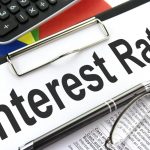Home loan lump sum partial pre-payment of mortgage can be useful to build good credit, but it is not always a good idea.

If you are servicing a home loan, and you have decided to prepay it to reduce your overall outgo in terms of interest payment, there are few possibilities you can consider.
You can either pay the full amount outstanding upfront, i.e., completely repay your loan before tenure, or, you can make part payments in lump sum to reduce your overall outstanding loan amount.
One of the reasons why many borrowers consider prepaying their home loan is the high interest cost, which forms the major component of the mortgages in the initial phase of the loan tenure.
While prepaying a home loan is something every borrower would want to do to save money, it is always advisable to do a detailed cost-benefit analysis before arriving at any such decision.
Home loan lump sum partial pre-payment in good times
If the homeowner is in the position to make a monthly payment that is higher than usual because of good fortune or an increase in salary, the homeowner may want to think about switching from a 25-year mortgage to a 15 or 20 year mortgage or do lump sum partial pre-payment.
Alternatively if the home loan interest cost is lower than the CPF OA interest rate, you may not want to pay down the loan from the CPF OA. This allows the homeowner to build equity quicker and save more money on the financing fees. In other words, the homeowner builds equity at a faster rate without putting out substantial amounts of money every month.
But there are other ways to save money than by doing a home loan lump sum payment. Mr Paul Ho, chief officer at iCompareLoan said: “If the main reason for fully repaying your home loan is the increasing interest rates, you can consider refinancing or repricing instead.”
ARM or FRM which makes for good home loan refinancing?
In getting the good refinancing loan, many homeowners decide to go for an adjustable rate mortgage because of the low rates in the beginning, especially before interest rates begin to fall. However, these mortgages are quite unpredictable and may increase without warning. This means the mortgage is able to fluctuate and can do so monthly by hundreds or even thousands of dollars.
Some homeowners have the desire to move to a fixed rate mortgage after starting with an adjustable rate mortgage because of its added stability. Since interest rates are always fluctuating, the original deal suddenly becomes less attractive. People decide to change their loan programs so that they can capitalise on those available rates that are best for them at that time.
Achieving better credit scores is another great reason to get good refinancing and lower existing loan payments. If the homeowner’s credit score has gotten better because mortgage payments have been made on time, the homeowner may be able to take advantage of that improved credit by refinancing into a loan with lower interest rates decreased payments.
If the homeowner has paid off a car, inherited a sum of money, or received a bonus at work, if the homeowner is planning to own their home into retirement, refinancing down from a 25-year loan to a 20 or a 15 year loan may be a good move financially rather than doing a home loan lump sum payments. With refinancing down, the payments will rise, but the extra money can be used to cover the difference.
By paying off the home earlier with the good refinancing loan, the interest that is saved over the life of the loan is quite significant. The homeowner will also own the home free-and-clear sooner.
Homeowners of private properties may consider cash-out-refinancing. The homeowner can use the money from a cash-out refinance to pay off other bills such as credit cards. This is the same as transferring the debt into the home loan. Due to the fact that mortgage rates are most likely lower than that of credit cards, not only will the total amount of monthly payments go down, you they will also have the peace of mind.
Good home loan refinancing will give you better cash flow
One major reason why many people refinance, is to improve their cash flow in the here and now by lowering their existing loan payments. You can lower your interest rate by choosing a mortgage rate which offers a better rate than you currently have. You can also consider lowering your payment by stretching out your current balance over a new term, but you must be mindful that age restrictions such as an age cap of 75 applies. And if you do that, you should take heed that it may take longer to pay off your loan but at the same time, you are improve your monthly cash flow and be more comfortable with repayment.
After all, even though people do live longer, it is still debatable if they will be able to work till age 75. But no harm kicking the can down the road and plan for it along the way and pass the issue to your children. They inherit the house/property, what is the issue with a little outstanding loan (debt)? Let the children work a little, do not serve it on a silver platter for them.
Even if your monthly payment drops, do keep in mind that the longer you take to clear your mortgage loan, the more interest you will have to pay over the life of the loan. This is the trade-off you have to make between immediate savings, long-term costs, and making home loan lump sum payments.
But if you choose to refinance, you can always choose to accelerate your repayment as your finances improve later in life. There are several reasons why homeowners may think they don’t qualify for a refinance for lower payments. One main reason is, they may believe that their mortgage balance is higher than the current market value of their properties that secures it. The other big reason being, their believe believing that their credit score is bad and won’t qualify them to refinance.
If you refinance to a lower rate, the chances are high that you will end up with a smaller payment. In fact, you can usually refinance for lower payments even if you get a higher rate. That is because in most cases, you will have reset the clock on your mortgage.
When should you seek good home loan refinancing?
Many homeowners explore refinancing in the third to fifth year, once their existing home loan’s lock-in period ends or the interest rates start to increase. If you’re unsure whether it’s time to refinance, you should speak with a professional.






